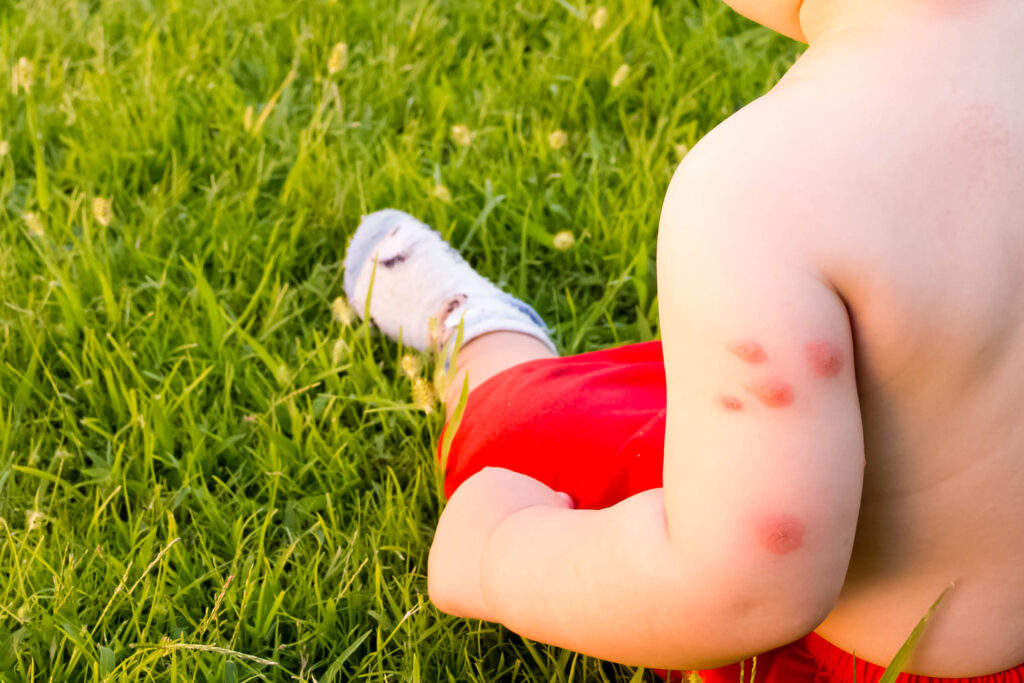
Summer brings warmer weather and outdoor adventures, but it also invites some unwanted guests: insects. From mosquitoes to bees and wasps, insect bites and stings can put a damper on outdoor fun. In this blog, we’ll explore how to soothe and treat common summer insect bites and stings, so you can enjoy the season without the itch and discomfort.
Understanding Common Insect Bites and Stings
- Mosquito Bites: These pesky insects leave itchy, raised bumps on the skin. Mosquito bites can cause discomfort and, in some cases, transmit diseases like West Nile virus or Zika virus.
- Bee and Wasp Stings: Bee and wasp stings can be painful and may cause swelling, redness, and itching at the site of the sting. In some individuals, stings can trigger allergic reactions ranging from mild to severe.
Soothing and Treating Insect Bites and Stings
- Clean the Area: Wash the affected area with soap and water to remove any dirt or bacteria that may have been introduced by the insect.
- Apply Cold Compress: Use a cold compress or ice pack wrapped in a cloth to reduce swelling and numb the area. Apply for 10-15 minutes at a time.
- Use Over-the-Counter Remedies: Apply over-the-counter anti-itch creams or lotions containing ingredients like hydrocortisone, calamine, or antihistamines to relieve itching and inflammation.
- Take Oral Antihistamines: If itching and discomfort persist, consider taking oral antihistamines to reduce itching and swelling. Follow the dosage instructions carefully.
- Avoid Scratching: Although it may be tempting, avoid scratching insect bites and stings, as this can lead to further irritation, infection, and slow down the healing process.
- Seek Medical Attention: If you experience symptoms of an allergic reaction such as difficulty breathing, swelling of the face or throat, or dizziness, seek medical attention immediately.
Preventing Insect Bites and Stings
- Use Insect Repellent: Apply insect repellent containing DEET, picaridin, or oil of lemon eucalyptus to exposed skin and clothing to repel mosquitoes, ticks, and other insects.
- Wear Protective Clothing: When spending time outdoors, especially in wooded or grassy areas, wear long sleeves, pants, socks, and closed-toe shoes to minimize exposure to insects.
- Avoid Perfumes and Bright Colors: Insects are attracted to strong scents and bright colors, so avoid using heavily scented lotions, perfumes, or wearing brightly colored clothing.
- Stay Indoors During Peak Hours: Mosquitoes are most active during dawn and dusk, so consider staying indoors during these times or using screens and mosquito nets to keep them out.
Conclusion
By understanding how to soothe and treat common summer insect bites and stings and taking preventative measures to avoid them, you can enjoy outdoor activities with peace of mind. Remember to stay vigilant, especially during peak insect season, and seek medical attention if you experience severe reactions or symptoms of an allergic reaction. With these tips, you can make the most of your summer while keeping pesky insects at bay.
Essential Guide to Understanding and Managing Insect Bites and Stings with Dr. Margie Diaz-Ochu at Bee Home Pediatrics
As we wrap up our discussion on insect bites and stings, it’s important to remember that while most insect encounters are harmless, some can cause significant discomfort and occasionally lead to more serious reactions. By staying informed and prepared, you can effectively manage and prevent insect bites and stings for you and your family.
Dr. Margie Diaz-Ochu at Bee Home Pediatrics is here to support you with any concerns or questions you might have about insect bites and stings. For personalized advice and care, don’t hesitate to contact us directly at 435-513-PEDS or visit my website. Your family’s health and safety are our top priority, and we’re always here to help.
